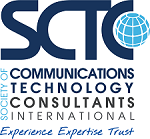As the world emerges from the pandemic, inflation has increased, the markets are slowing, interest rates are rising, and some companies are experiencing layoffs. At the beginning of the pandemic, we saw huge investments in technology so workers could work from home. Many organizations deployed makeshift solutions to equip workers with the technology they needed to get their jobs done. That 2020-2021 shift toward more technology spending was not planned or budgeted for. However, now that the initial adjustment to remote or hybrid workplaces is over, the spending on the tools and services supporting that workforce is going to shift. Add a cooling economy. Both elements may contribute to an organization looking at a spending slowdown or budget cut.
There are four things I would recommend IT organizations do to better control their budgets during this downturn. All of them come back to one simple principle: know where you're spending your money and whether the expenditures are entirely necessary.
Validate User License Inventory
With the shift of staffing both with work from home, mobility and workforce reductions, make the licenses for software, applications and services reflect who's really using these tools.
- Are you paying for more licenses than active users?
- If a user is strictly working from home, do they need a license for in-office services also?
- Are your application license agreement terms and conditions up to date?
Ask yourself these questions and take action to modify inventories and agreements as needed. You would be surprised with the cost savings available but doing this one activity.
Evaluate Contract Status for Carrier Services
Since technology is moving and evolving so quickly, many clients do not sign more that 24 or 36-month agreements. A slowing economy is a good time to reassess your agreements. Here is what you should be asking of each of your carrier service contracts.
- Are you coming close the expiration of your contract term?
- What happens to your contract at expiration?
- Does your agreement automatically renew?
- Does your contracted rate increase upon expiration?
- If you want to change carriers or services and get out of the contract, what is the termination notification period?
By taking a hard look at your agreements, you can save money.
Determine If You're Paying for Antiquated Services
I spent most of 2022 writing about the decommissioning of the copper network. There has been a big push by carriers that own the older copper networks to eliminate those services. And the FCC has allowed incumbent carriers to stop selling their services to competitors at a discount. Increased cost of support, scarcity of repair parts and an aging technician staff have motivated vendors to shift their strategy. Many carriers are pulling the plug on these aging networks, driving customers to look elsewhere for services. Other vendors are increasing costs dramatically.
Do you have antiquated services in your network? If so, do you really need them? Are you paying a fair price for these POTS services? I have seen costs for a simple POTS line rise 500% in a short period of time.
Identify Low-Hanging Fruit
The obvious places to reduce IT costs are in services – and thanks to the shift in working habits, it's a good time to see which service expenses can be adjusted downward. Many organizations are closing or downsizing offices where staff are working from home. Adjusting expenses to meet these changes can save a lot of money. There are many carrier services that no longer require contracts such as broadband and cellular. Can these services be utilized on a short-term basis to meet challenges within your organization? Are you holding onto services because they were initially a good deal, but you really don’t need them now?
There are so many ways to reduce the cost of your IT expenses. These activities are just the tip of the iceberg. With reduced staff and more demand for advanced technology than ever, it may make sense to engage a consultant that can holistically look at your expenses and make recommendations that will create big savings for your organization.
Denise is writing on behalf of the SCTC, a premier professional organization for independent consultants. SCTC consultant members are leaders in the industry, able to provide best of breed professional services in a wide array of technologies. Every consultant member commits annually to a strict Code of Ethics, ensuring they work for the client benefit only and do not receive financial compensation from vendors and service providers.











